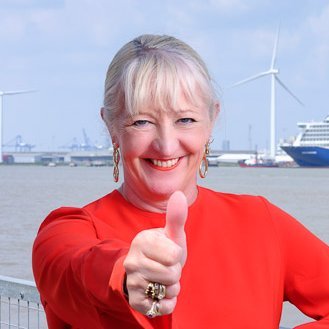According to a recent study by The Thames Estuary Growth Board, the River Thames has enormous untapped potential for handling light freight.
The ‘Light Freight on the River Thames’ report has been commissioned by the Thames Estuary Growth Board ( led by government-appointed Envoy Kate Willard OBE) and the Port of London Authority, and delivered by WSP UK, one of the world’s leading engineering professional services consultancies.
The purpose of the report was to provide the framework for a viable light freight solution on the River Thames and demonstrate any benefits for both business and the wider public.
The challenge for any proposed river freight model is that it needs to be a viable option for supply chains for it to be adopted by business. The report found that the River Thames could be better used for large-scale light freight, such as deliveries of parcels, food, beverages, and retail goods. Handling just three per cent of the 700 million parcels delivered in London annually could make river freight competitive with traditional road freight.
The report concluded that it could be an operational and financially viable proposition. It sets out the following recommendations:
- Establish a coordinating body to facilitate river investments.
- Show how operations at the key points – loading, unloading and last mile – can work seamlessly and efficiently to attract anchor customers.
- Develop detailed options for pier development that minimise costs and maximise market access.
- Realise the social benefits of river freight through revenue support mechanisms and understanding of customer willingness to pay for environmentally friendly deliveries.
- Push for limited increases in road pricing to facilitate an enormous reduction in van traffic.
- Enter discussions with large, innovative online businesses that can become the potential anchor clients that will achieve the 20m parcel target.
- Support the development of proof-of-concept trials, including those currently underway.
Kate Willard OBE, Estuary Envoy and Chair of the Thames Estuary Growth Board, said: “Good, green growth is so central to everything the Thames Estuary Growth Board does – that means sustainable growth that works with the environment and resources we have around us. The Thames is a fantastic example of this. We have this enormous opportunity to make the most of the river and use it to deliver new jobs, reduce road congestion and clean up polluted air.”
James Trimmer, Director of Planning and Environment for the Port of London Authority, said: “The Thames is home to the UK’s largest port and inland waterway and provides a sustainable and reliable, congestion free highway into the heart of the capital. The WSP report shows how ‘joining the dots’ between port and consumer is a very real possibility and one which will deliver manifest environmental and wider social benefits. At the PLA we’re working daily to turn this potential into reality.”
To read the full ‘Light Freight on the River Thames’ feasibility study, please visit thamesestuary.org.uk/light-freight




